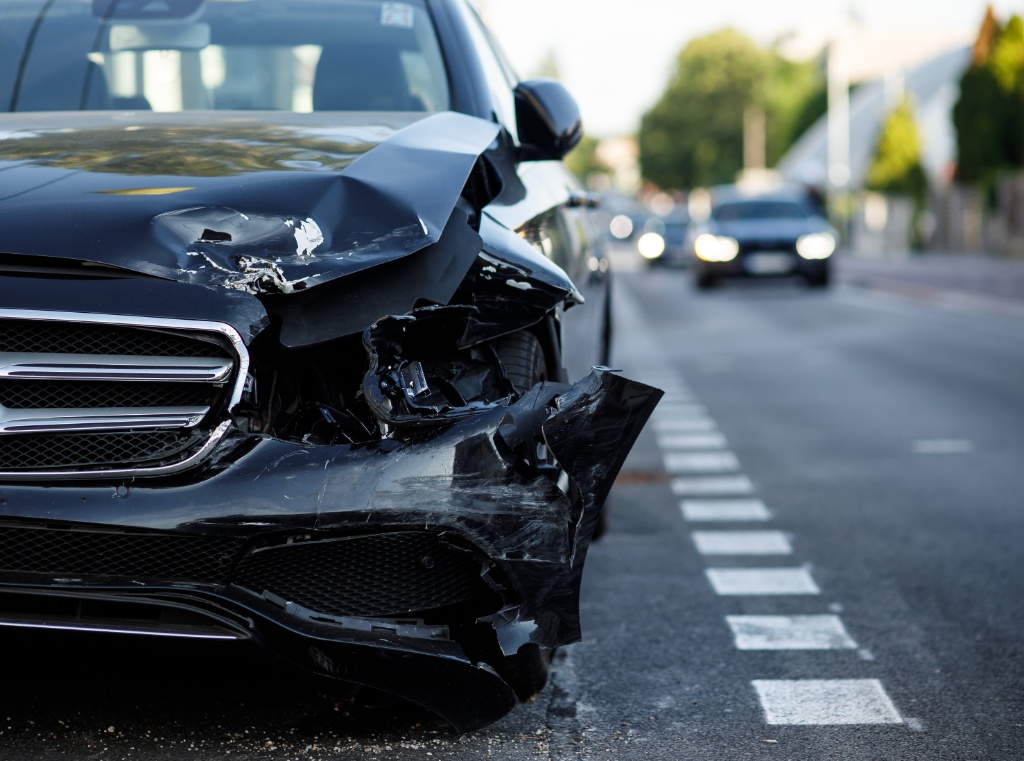June 14, 2018 | ICBC Claims
Ten Mistakes People Make With ICBC Claims
Table of Contents
Important Notice: Our firm can only assist with ICBC claims for accidents that occurred before May 1st, 2021. Unfortunately, we are unable to take on claims for accidents occurring on or after this date.
Each year, British Columbia’s compulsory auto insurer, ICBC, processes around 900,000 insurance claims. In 2016, the average settlement for minor injuries was about $30,000, and for serious injuries that figure was about $48,000. But not all ICBC claims result in a settlement or payout.
The process for making a claim hides plenty of traps for the unwary. Even individuals with valid claims can make a mistake in pursuing or proving those claims, resulting in a reduction in their recovery—or a denial altogether.
To help British Columbians avoid those mistakes and obtain the optimal recovery from their ICBC claims, below is a list of 10 common mistakes people make with ICBC claims.
1. Not getting the other driver’s information
If you do not find out the identity of the person who caused your accident, then you may be barred from making an ICBC claim. Always get the driver’s name and license plate. Take pictures if possible.
If you are involved in a hit and run, call the police and ICBC immediately. Report the accident to ICBC in writing as well. Interview witnesses and get their contact information. You should also put up signs near the accident location and put an ad in the newspaper asking for witnesses to contact you. Follow up with the police and their investigation.
Consult an ICBC lawyer to make sure you are protected.
2. Not attending the doctor
Many people do not like going to the doctor or talking about their health problems, especially when it comes to symptoms like anxiety and depression.
If you are injured in a car accident, then you should attend the hospital, your family doctor or a walk-in clinic. Tell the doctor all of your symptoms, not just the worst ones. Your doctor’s records and notes will form a part of your case, so you want them to be complete and accurate.
If the doctor does not know about all of your symptoms, they cannot properly treat you or diagnose your injuries.
If some of your symptoms are kept secret, you also cannot be compensated for them as a part of your ICBC case, preventing fair compensation.
3. Not reporting concussion symptoms
Concussions are under-diagnosed in Canada due to health professionals not being properly trained to screen for symptoms and injured people not reporting them. Concussions can cause severe, long-term impacts, especially if they are not diagnosed in a timely way.
If you have any concussion symptoms, report them to your doctor immediately. Symptoms include:
- headaches
- light sensitivity
- sound sensitivity
- memory trouble
- concentration trouble
- irritability
- ringing or buzzing in your ears
- balance trouble
- dizziness
- nausea
- trouble finding the right word to use
- slurring
- fatigue
- sleeping too much or not enough
- anxiety
- depression
- personality changes
- trouble controlling your temper
4. Not reporting the accident
All car accidents should be reported to the police. If someone needs medical attention, then call 9-1-1. For minor injuries, call the non-emergency line.
The best time to investigate an accident is immediately after it has happened. The police will investigate and interview witnesses to determine who is at fault and preserve evidence. They may also issue a ticket to the offending party.
You should report the accident to the ICBC dial-a-claim line soon afterwards. If you are not comfortable reporting the accident yourself, then have a lawyer report it for you.
5. Speaking with ICBC about your case
Anytime you speak with an ICBC representative they will take notes of the conversation. These conversations may later be used and twisted by defence lawyers to try and undermine your case. Don’t give them that opportunity. It is best to have your lawyer handle all conversations with ICBC.
6. Not applying for medical employment insurance
If you cannot work after an accident, then you may be entitled to up to $300 per week in income replacement benefits. ICBC will not generally pay you this income replacement benefit until you have applied for and received or been refused medical employment insurance. Make sure you apply as soon as possible to avoid delays in your payments.
7. Not knowing what their claim is worth
ICBC is a business. It is against its interests to settle your claim for the full legal value. ICBC will often try to settle your case for much less than it is actually worth. Unless you know the full extent of your injuries and losses, and what value the law places on them, never settle your case. The best way to learn the legal value of your case is to consult a lawyer.
8. Settling too early
You should not settle your case until you know how your injuries will affect your future. Your concern should not be on the year after your accident but the remainder of your life. Permanent injuries can mean long-term medical expenses and long-term income loss.
Injuries that get worse over time can lead to early retirement, meaning someone may be unable to work when they are at their highest income-earning potential.
Take two examples of injuries with lasting consequences: whiplash and fractures involving a joint. Most people recover from whiplash, but others go on to have permanent injuries. Do not settle your case until you know what camp you belong to.
Fractures that involve the joint (called “intra-articular” fractures) often lead to post-traumatic arthritis that does not develop for several years. This means that someone could believe they are completely healed but then later in life be debilitated by arthritis and unable to work.
Before you settle, know your injury and how it could impact your future.
9. Applying for worker’s compensation
If you were working at the time of your accident, then you may have a choice to pursue WCB benefits or an ICBC claim.
If you and the person who caused your accident were both workers at the time of the accident, then you can likely only pursue WCB benefits.
If you were working at the time of the accident, but the other person who caused your accident was not, then you can choose to pursue an ICBC claim.
Generally speaking, ICBC claims provide a fairer compensation scheme than WCB benefits. For example, ICBC claims often allow you to recover all of your income loss rather than a percentage of it and allow you to recover pain and suffering damages.
Do not elect to receive WCB benefits until you know if an ICBC claim is an option or you could be walking away from fair compensation.
10. Not preserving evidence
Take pictures of your injuries and the accident location, showing the damage to the vehicles and where the vehicles came to rest after the accident. This evidence could be important later when memories are not as fresh.
Keep all receipts related to your injuries, even for parking at your doctor or physiotherapist’s office. If you do not have the receipts, then you may not be compensated for them.
If you have your own business, you need to record every instance where your injury causes you to lose income, including recording when you cannot work, when you are less productive at work, when you lose a contract or potential business opportunity, etc.
You should keep a record of potential witnesses to your income loss and their contact information, preserve all business documents, and record how much income you have lost.
Avoid ICBC Claims Mistakes: Hire an ICBC Lawyer
These are not the only traps for the unwary lurking in ICBC’s claims process. ICBC is a sophisticated corporation with plenty of tricks up its sleeves for avoiding or underpaying meritorious claims. The best way to level the playing field is to hire knowledgeable ICBC lawyers like those from the Preszler Injury Lawyers.
If you’ve been injured in a car accident, contact Preszler Injury Lawyers today for a free consultation regarding your ICBC claim.
Written by Tyler F. Dennis
Personal Injury Lawyer
Lawyer Tyler Dennis focuses his practice on helping accident victims. He regularly works on complex accident cases, slip and fall claims, long-term disability appeals, and more.
More ICBC Topics
Here’s more information on ICBC related topics that we think you might find helpful.

ICBC
|
February 20, 2020
Will the ICBC Cover Me If I Hit an Animal While Driving?
Hitting a large animal, such as a moose or deer, can cause serious injuries and significant damage to your vehicle. Since these wild creatures do…

ICBC
|
February 8, 2020
Is There a Cap on Personal Injury Compensation From ICBC?
For years, there has been no cap on personal injury compensation for ICBC claims. Without limits, the victims of accident injuries had the opportunity to…

ICBC
|
February 7, 2020
What Are ICBC Part 7 Benefits?
ICBC Part 7 Benefits apply to accidents involving an insured motor vehicle in British Columbia. These “no-fault” benefits are designed to provide short-term relief to…
Speak With Our
Legal Team for FREE
Find Out if You Have a Case in Under 5 Minutes
Speak to a Lawyer Now!
We’re here to help.
